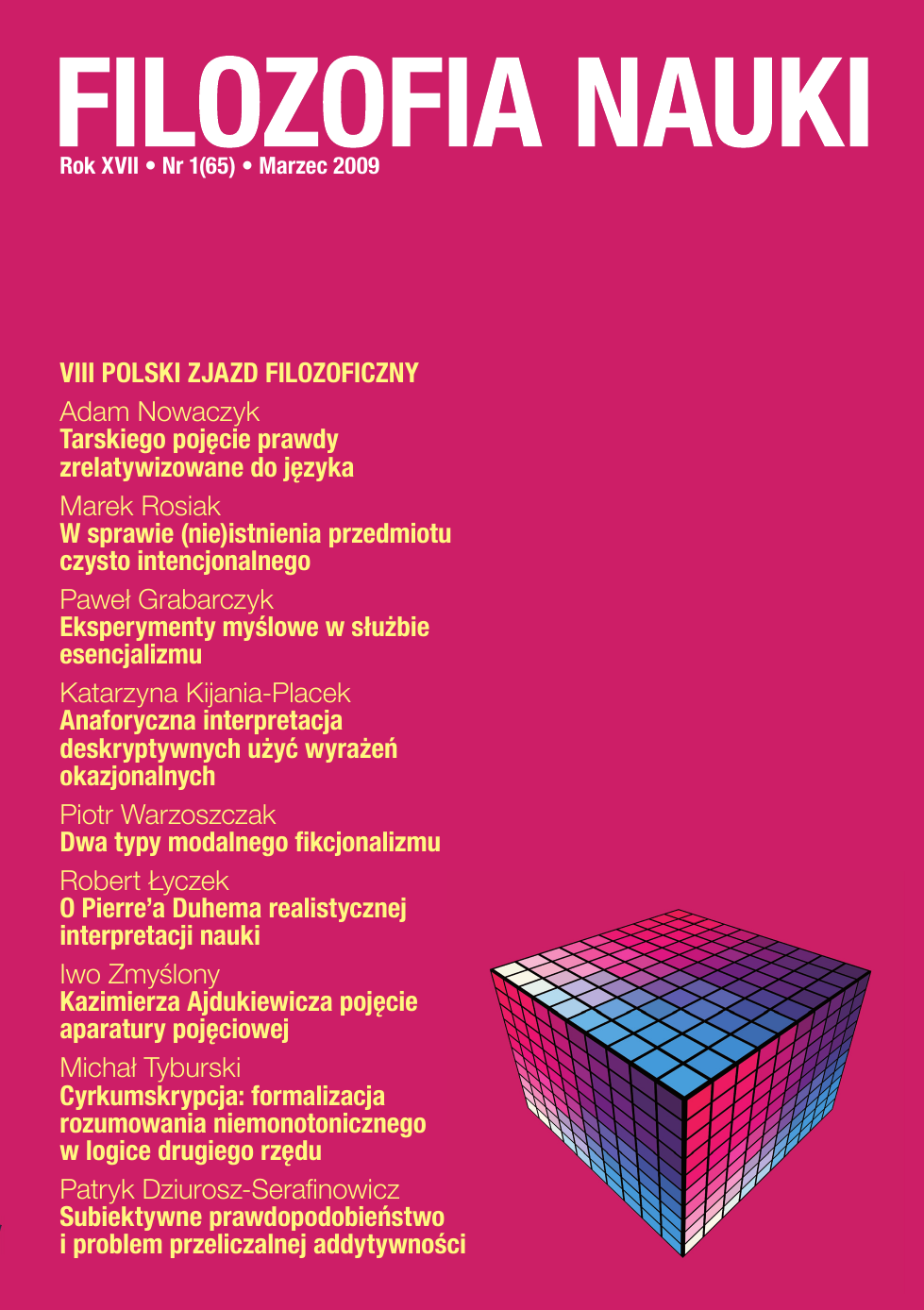Anaphoric Interpretation of Descriptive Uses of Indexicals
Keywords:
indexicals, descriptive uses of indexicals, anaphora, quasi-anaphora, singular propositionsAbstract
Descriptive uses of indexicals result in expressing a general proposition instead of a singular proposition, which is typical for indexicals. In contrast to Nunberg's and Recanati's proposals, who treat such uses of indexicals as referring, the conception developed in the paper is a quasi-anaphoric interpretation of descriptive uses of indexicals. In the quasi-anaphoric mechanism an indexical expression inherits its semantic properties from its antecedent, but - in contrast to classical anaphora - that antecedent comes from extra-linguistic context: it is a salient property of the individual in question. Since indexicals are quasi-anaphoric with respect to properties instead of being anaphoric with respect to referring expressions, the propositions generated are general. Three types of descriptive uses of indexicals are distinguished. In the first type the quasi-anaphoric mechanism is triggered by the conflict at the semantic level between the singularity of an indexical and the generality of a quantifier. In the second type (luck of reference in the context) the proposition is generated at the level of primary pragmatic processes. In both cases the propositions in question are the propositions expressed. In the third type the quasi-anaphoric mechanism is triggered by the conflict between the proposition expressed and the purpose of expressing it. As a result the proposition generated quasi-anaphorically is the Gricean proposition implicated.Downloads
Published
2009-03-01
How to Cite
Kijania-Placek, K. (2009). Anaphoric Interpretation of Descriptive Uses of Indexicals. The Philosophy of Science, 17(1), 31–39. Retrieved from https://fn.uw.edu.pl/index.php/fn/article/view/558
Issue
Section
Articles















 Filozofia Nauki/The Philosophy of Science | ISSN 1230-6894 | e-ISSN 2657-5868
Filozofia Nauki/The Philosophy of Science | ISSN 1230-6894 | e-ISSN 2657-5868